USMCA and Chapter 84, What You Need to Know
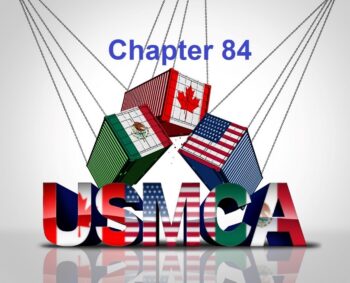
The new agreement is similar to NAFTA in many respects, and the commitments that pertain specifically to machinery, equipment and computers in Chapter 84 have not changed very much, with the exception of the rules of origin calculations for motor vehicles and parts, which impacts several categories of goods in Chapter 84.
USMCA Chapter 25 – Call to Action
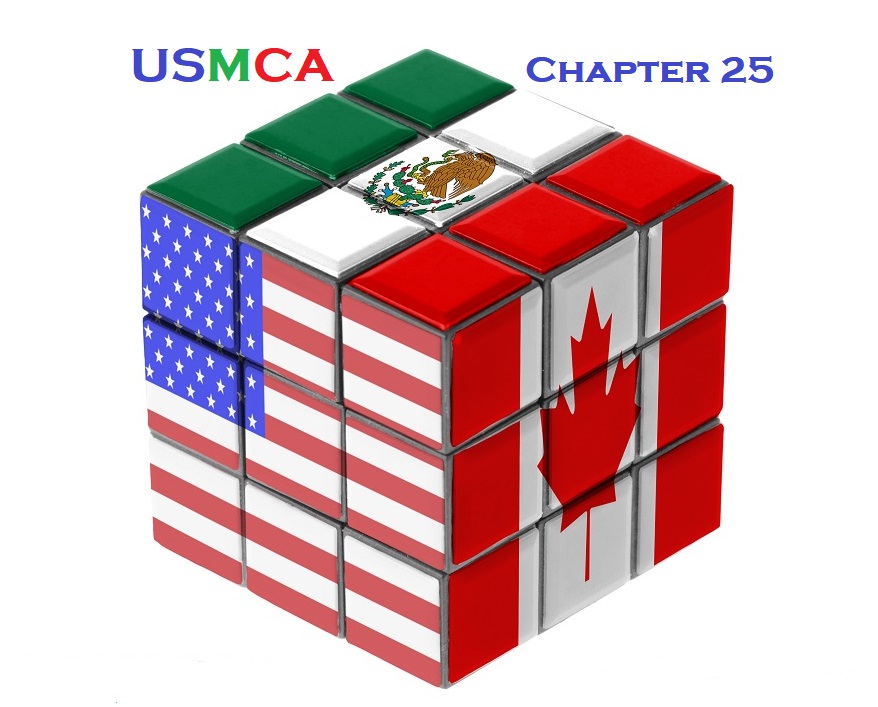
The enactment of the “United States Mexico Canada Trade Agreement” (“USMCA”) on July 1st, 2020, heralded the first new tri-lateral trade agreement since the enactment of its predecessor, NAFTA in 1994.
A Harried Hong Kong Make for Import/Export Uncertainty
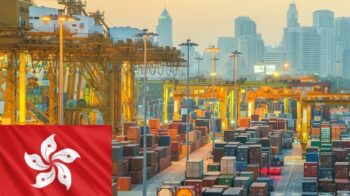
On July 14, 2020, President Trump issued an executive order (EO) that stripped Hong Kong of its different and preferential treatment from mainland People’s Republic of China (PRC or China). In accordance with the 1984 Sino-British Joint Declaration, the city of Hong Kong’s sovereignty was handed over to mainland China from the U.K. in 1997, but as an autonomous city with a largely separate legal and economic system from mainland China.
When a Few Bad Apples Create Havoc in the Orchard

To a certain extent, it goes without saying that the pandemic has certainly opened the door for PPE opportunity, and at the same time, obviously, those who would choose to simply try and take advantage of the situation. I’m not talking about price gouging, although that has certainly happened (as always) in abundance.
COVID-19 and the Impact on the Asian Apparel Industry

At the time of this writing, it’s not exactly another day in paradise, over 103,000 Americans are no longer with us, there are an estimated 1,500,000 confirmed U.S. cases of the coronavirus, and I am also ballparking at 40,000,000+ unemployment claims filed at the time of this writing, because just two weeks ago it was at 36,500,000.
Chemicals and the USMCA, It’s Not Just How You Mix It to Get a Reaction (or not) From CBP

The USMCA is about to kick into full force on July 1st. Is your chemical company ready? Overall, if you’ve been issuing NAFTA certificates in the past and are already familiar with that process, you might be surprised to find that the USMCA process might allow for more of your goods to qualify than NAFTA did
Obtaining a USMCA Alternative Staging Regime (RTA) for automotive producers in Mexico
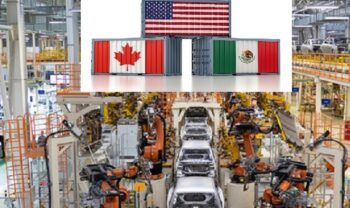
USMCA (T-MEC as it is formally called in Mexico) will enter into force on July 1, 2020. At least this is what the government of the Party members, the United States, Mexico and Canada have announced. In this case, operations occurring after this date will no longer be covered by NAFTA as this treaty will be terminated and consequently replaced by the USMCA.
Are You Gonna Sign That Thing? Getting Certified Under USMCA
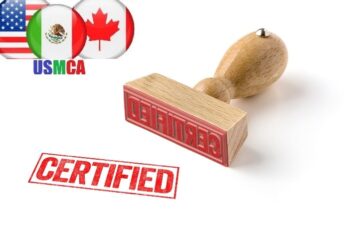
One of the major changes to come out of this trade agreement is elimination of the NAFTA Certificate of Origin. Instead, the USMCA replaces the Certificate of Origin with a certification. In this regard, the USMCA will more closely resemble other free trade agreements, such as the Korean and Australian, which also utilize a certification.
Recent CBP Entry Summary Guidance for Pipe Spools from Multiple Countries of Origin – Shapes of Things to Come?

On March 24, 2020, U.S. Customs and Border Protection published Cargo Systems Messaging Service # 42133823 “Entry Summary Guidance for Pipe Spools from Multiple Countries of Origin” (the Message). The Message provided:
Solving Trade Problems Under the New USMCA
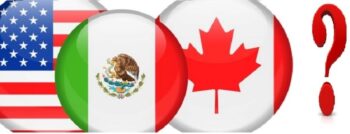
This article outlines the various mechanisms available to companies that encounter problems with the implementation and operation of the United States-Mexico-Canada Agreement (USMCA) that officially replaces NAFTA on July 1, 2020. While the new agreement provides many of the same mechanisms as NAFTA, there have been significant changes.
